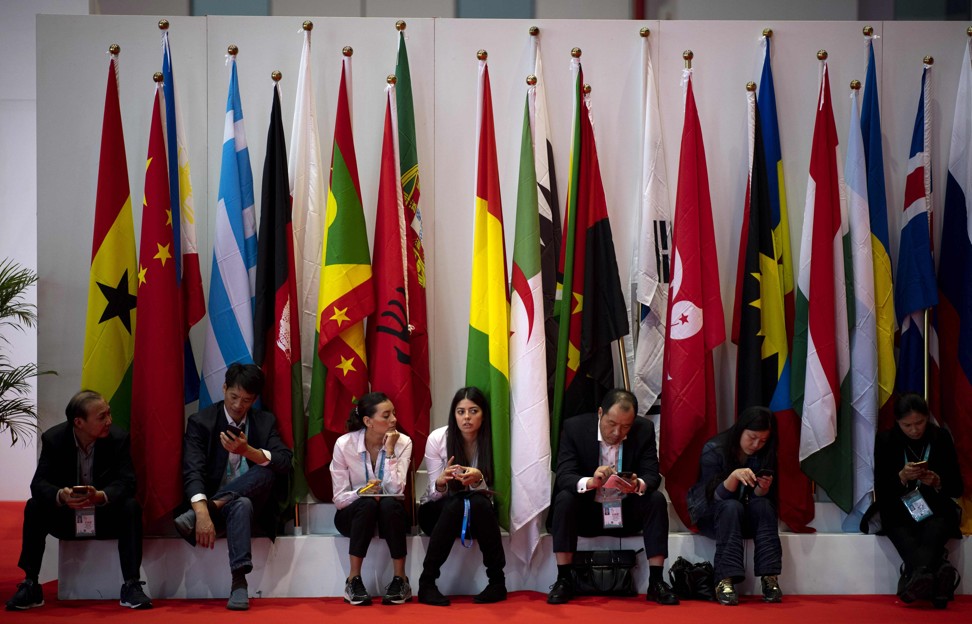
Most US exporters who sell to China count the market as their top priority, HSBC survey shows
- More than half of the US companies that sell to China count the nation as among their top three destinations for expansion in the next three to five years
American exporters that are selling in China will continue to expand in the world’s most populous market, according to a survey by Europe’s largest bank, providing a measure of on-the-ground business reality that repudiates the basis for the US-China trade war.
More than half of the US companies that sell to China count the nation as among their top three destinations for business expansion in the next three to five years, according to HSBC’s survey in September of 1,205 companies. The sentiment was strongest in the US (58 per cent), and among manufacturers (51 per cent), the survey showed.
Technology and consultancy services, as well as consumer electronics and appliances are among the fastest-growing sectors for US companies, HSBC said.
“This dovetails with their strong belief that their specialist expertise and their competitive pricing will drive growth in sales in China,” said HSBC’s Asia-Pacific Head of Commercial Banking Stuart Tait, during an unveiling of the survey data at the China International Import Expo in Shanghai.
The survey data is further evidence of how the trade war started by US Donald Trump’s administration contradicts the benefits of globalisation, including the business interests of American manufacturers and exporters, many of whom form the core of his constituency. In midterm congressional elections that closed overnight, American voters expressed their discontent with Trump on a range of issues, returning the opposition Democrats to reclaim the House of Representatives to provide a check on the president’s policies.
American exhibitors make up the third-largest congregation at the Shanghai expo, even if their country is not represented by a national arena, with 136 exhibitors showing more than 500 different types of products, according to the organiser’s website.

China is the most important market for 40 per cent of US companies surveyed, and for 39 per cent of firms based in the United Arab Emirates (UAE), HSBC said. In the Asia-Pacific, China - the dominant economic and military power in the region - counts as the No. 1 priority to the business future of companies in Malaysia (91 per cent) and Australia (84 per cent).
The survey data does offer some instructive business lessons in light of the ongoing trade war.
“To succeed in the future, international businesses must be “Made for China”, Tait said, adding that young, technology-savvy Chinese consumers are becoming increasingly like their peers in developed economies. “China is no longer just the world’s factory; its fast-growing consumer market is prompting international businesses to re-evaluate how and what they sell to China.”
China’s economy has expanded 225 times since 1978, growing eightfold since it joined the World Trade Organisation, and is poised to surpass the US as the world’s largest economy around 2030, based on current growth trajectory. That has lifted 500 million people - more than the entire US population - out of abject poverty, according to World Bank estimates, and created a middle class that numbers in the hundreds of millions.
Rising affluence and increasing disposable income form the key growth catalysts for exporters that sell to China, according to 30 per cent of those surveyed.
Adapting to a distinct business culture, local taste, and a fast-changing infrastructure highlighted by e-commerce and online payment are the top changes for foreign exporters, HSBC said.
The importance of e-commerce to the under-40 demographic is clear. These consumers have grown up alongside the phenomenal expansion of online shopping platforms, which recorded sales of over US$1 trillion in 2017, the report said.
Businesses already selling to China identify the importance of having both a physical and an online presence to reach their target consumers. The strategies most commonly used to access the Chinese market are developing local distributor networks (51 per cent), entering into joint ventures (47 per cent) and selling directly via e-commerce and smartphone-enabled shopping, or m-commerce (46 per cent), HSBC said.

